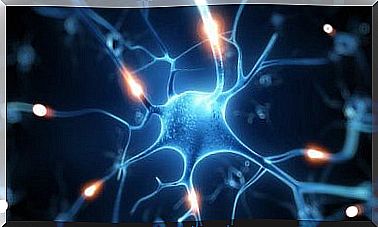Cancer: Its Consequences For Emotional Health
Like other chronic and degenerative diseases, cancer affects patients emotionally in a very significant way. In this article, we tell you why.

Cancer is one of the most prevalent diseases in the world. In 2018 alone, 18.1 million new cases were diagnosed. In addition, it is estimated that the number of patients will continue to increase over the coming decades, reaching 29.5 million new diagnoses in 2040.
Although the causes of cancer are multifactorial – genetic in origin, infections, radiation or exposure to chemical carcinogens – there is a high percentage of cases due to lifestyle.
Therefore, tobacco, alcohol, sedentarism, chronic stress, obesity and poor diet, are factors that directly or indirectly increase the risk of developing a malignant tumor.
Like any other disease that develops over time and has a high death rate, cancer affects emotional health very deeply.
How do patients react to the diagnosis of cancer?
When faced with a diagnosis of a malignant tumor, people react in very different ways depending on their personality and what the cancer means to them. According to Moorey and Greer (1989) , patients react according to their own coping mode. The five main reactions are:
- The struggle. The person takes a proactive attitude towards the disease, seeking information and getting involved in treatment.
- Negation. The patient does not talk about it and acts as if it is not him.
- Fatalism. The subject places himself in the worst-case scenario, whether or not he has objective data to corroborate it.
- Despair. The patient experiences a lot of negative thoughts that promote a depressive environment.
- Anxious worry. The person feels great difficulty in dealing with the uncertainty generated by the disease.
Do the patient’s emotions change over time?
As patients go through different physical stages of the disease, their thoughts, feelings and emotions also change and adapt to each phase.
So the situation will be very different if the person responds to treatment and there is a cure, if there is partial remission, relapse, if the subject has metastases or is terminally ill.
Therefore, the personality of the patient and the stage of the cancer in which he is found will to a large extent determine his psychological adaptation.
Anxiety and Depression in Cancer Patients
Anxiety and depression are the most common psychological reactions in cancer patients.
The Depression
According to various studies, the prevalence of depression can vary between 4 and 58% of patients, depending on the type of population studied, and the condition in which the patients are.
The average is around 40%. A very high percentage compared to the general population, which is around 3 to 5% in Europe.
A depressive environment may cause the patient to watch less for symptoms of the disease and to refuse treatment more often.
It is therefore important that those around them are familiar with the symptoms of depression and maintain direct communication with the psycho-oncologist or the person providing emotional support to the patient.

Anxiety
Cancer can cause many situations in which patients feel nervous, and even experience intense fear. Here are the most common reasons:
- Anxiety reactive to diagnosis.
- Difficulty dealing with uncertainty.
- Reactivation of previous anxiety: phobias, panic attacks, generalized anxiety or post-traumatic stress.
- Fear of physical suffering and pain.
- Existential anguish.
- Anxiety increased by pharmacological treatments.
- Suffering because of pain in the family environment.
- Fear of treatment (side effects, surgical interventions, physical and psychological consequences).
- Fear of death.
Emotional support is very important
The cancer survival rate has increased in recent years for many of its types. However, it remains a fatal disease for many patients.
Often, family and friends focus more on the results of tests or biopsies and put the emotional state of the sick person in the background. However, studies show that an individual can suffer tremendously emotionally.
Therefore, it is essential that the family and those closest to them learn to provide emotional support. Either through specific training, or by consulting a therapist or a specialist in psycho-oncology.









